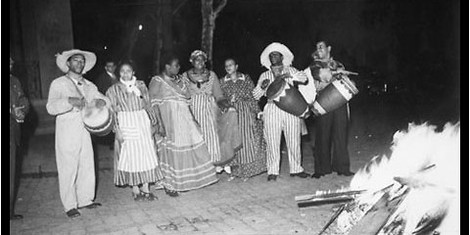Your podcast discovery platform
Curious minds select the most fascinating podcasts from around the world. Discover hand-piqd audio recommendations on your favorite topics.

piqer for: Global finds
Ciku Kimeria is a Kenyan author "Of goats and poisoned oranges" - (https://www.amazon.com/goats-poisoned-oranges-Ciku-Kimeria-ebook/dp/B00HBBWPI6), development consultant, adventurer and travel blogger (www.thekenyanexplorer.com). She writes both fiction and non-fiction focusing on African stories that need telling. She has worked on diverse pieces for various international and local publications including Quartz, Ozy, The East African etc. She has travelled to 45 countries – 16 of them in Africa. 153 countries to go and 63 territories!
"Of goats and poisoned oranges" has been extremely well received in Kenya and beyond. It tells the story of a Kenyan middle aged power couple and their complicated marriage. The novel explores issues of greed, revenge, betrayal and murder. It runs from the 1960s to 2013. It has been described as “Wicked, funny, poignant, wacky, human, a big ball of fun and danger”, “A unique and captivating book”, “Fun and intriguing”, “Impossible to put down once you start reading.”
She recently moved to Dakar, Senegal from Kenya to work on her second novel. She also works at as the Africa Communication Manager at a leading global strategy consulting firm.
She holds a B.S. in Management Science from MIT with minors in Urban Planning and International development studies.
The Whitewashing Of Afroargentines' History
Years back when backpacking alone through South America, I recall wondering "where are all the black people" when I was in Argentina. With my knowledge of the transatlantic slave trade, I was quite surprised to cross borders from Brazil (the country that has the largest population of black people after Nigeria) to Bolivia, then Argentina, and feeling confused as I was the only black person around almost for my entire trip through Argentina.
Some part of me wanted to conveniently believe that somehow there were no slaves in Argentina, but the truth was more sinister. With Argentina's appearance at the World Cup and the clear difference in complexion between players in their team and those in other South American teams, many people are again asking, "What happened to Argentina's black population?"
In the late 18th century, a third of Argentina’s population were slaves or of African origin. In the city of Buenos Aires, often epitheted as the “Paris of the South”, Afrodescendants accounted for half the population in the early 19th century ... Conventional wisdom holds that the Afroargentine population vanished, decimated as cannon fodder in the Paraguayan War, and devastated by subsequent epidemics of yellow fever and cholera. But this shibboleth disregards the existence of a significant Afroargentine community today. Further, it glosses over the way in which the country and its consciousness were systematically and purposely “whitened” by its intellectual and governing class.
In this fascinating read, the reader gets to understand a bit more about an effective whitewashing campaign that has all but eliminated the country's collective memory of its black people, even while incorporating key elements of their culture in theirs (tango, music and dance, culinary feats, etc.). Despite all this, there is still a small, though mostly invisible, Afroargentinian population that makes it difficult for Argentina to deny their existence.
